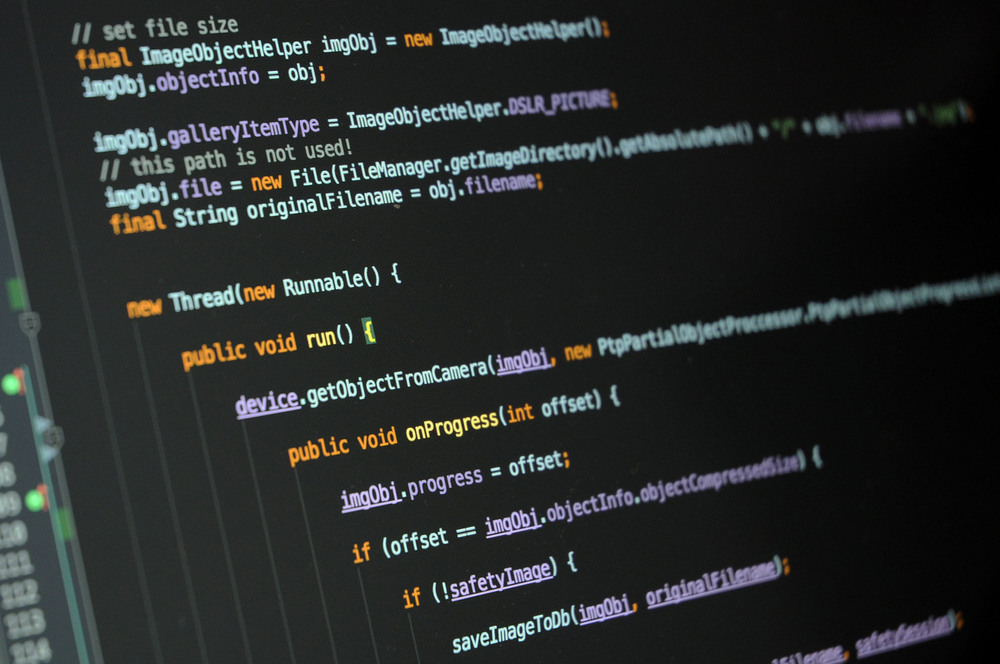


Android is an open source and Linux-based operating system for mobile devices such as smartphones and tablet computers. It was developed by the Open Handset Alliance, led by Google, and other companies. This course will teach you basic Android programming and will also take you through some advance concepts related to Android application development.At the end of the course,you will be able to create your own Mobile app and publish it to play store.
If you're brand new to Android and want to jump into code, then you are in the right hands.
This course is designed for students who are not that new to programming, and want to learn how to build Android apps. You don’t need much programming experience to take this course,but atleast we recommend one to have some Java background. If you’ve been using a smartphone to surf the web and chat with friends, then you must have wondered who create such apps?You can be one.

Frequently Asked Questions
Whether for fun or for profit, developing Android apps can be rewarding, both personally and financially. Assuming you have a certain level of technical knowledge then it is possible to develop Android apps yourself, but what programming languages do you need to learn?
Do you have a business concept based on mobile apps? You can build your android mobile app at the end of this training,and put your idea to practice.
Android p
The official language for Android development is Java. Large parts of Android are written in Java and its APIs are designed to be called primarily from Java.
Java is a programming language first released by Sun Microsystems back in 1995.
It can be found on many different types of devices from smartphones, to mainframe computers. You can use it on your desktop PC and even on the Raspberry Pi.
Java doesn’t compile to native processor code but rather it relies on a “virtual machine” which understands an intermediate format called Java bytecode.
Each platform that runs Java needs a virtual machine (VM) implementation.
On Android the original VM is called Dalvik. Google has also started previewing its next generation VM called ART. The job of these virtual machines is to interpret the bytecode, which is really just a set of instructions similar to the machine code found in CPUs, and execute the program on the processor. The VMs use a variety of technologies including just-in-time compilation (JIT) and ahead-of-time compilation (AOT) to speed up the processes.
First you need to have logical and analytical understanding.
Know how to Visualize a problem and convert it into real world solutions by easy possible ways.
Ways to Navigate different pages i.e. via Intents in Android
Fragmets for reusability
Listeners like OnClick,Onswipe etc for making the events to happen
Ways to Integrate third party API like Facebook,Google,Twitter etc
Notifications
Database connectivity for effective storage of information
REST API consumption through Volley/Retrofit
NFC/RFID technologies as all smart phones are requiring this facility and in many places login access is getting done via this technology.
There are lot more to learn upto even Monetising Hosting android apps in the Play Store.
The ability to develop apps for Android is an extremely hot skill to know right now. For the first time, it is starting to overtake Apple’s iOS as the most lucrative mobile platform to develop apps for. Given the expansion of the beautiful Material Design framework in Marshmallow and Nougat, now is an excellent time to learn Android development.
In terms of marketshare, Android is absolutely clobbering iOS with a whopping 85% of the global market in 2018. This growth is also accelerating as more people globally plug into the Internet for the first time. A mind boggling 1.3 million new Android devices are activated each day and the number of Android devices in the world now numbers in the billions.
With such astounding growth, there is naturally a great shortage of Android developers.
Fortunately for Android app developers, Google has put enormous resources in the last several years to improve the Android user experience and improving the quality of the Google Play store.
The growth and mobile operating system dominance of Android will continue for the foreseeable future. Android app development is currently the #4 most sought-after digital skill on Indeed, which means there are plenty of opportunity for freelance Android app developers. The money is also very good.At average,a simple mobile app for a client may not cost less than 50,000 Kenya shillings,ie if you meet a cheep developer.
f you are new to programming but you have interest in Android programming,dont worry,you can still learn android however,we recommend you learn Java first. We will use Android Studio to build our apps, and each student will have access to a computer that can run Android Studio in order to follow along.
Don’t worry, you do not need to install Android Studio by your own.
We will teach you how to install Android studio as part of the course. Access to an Android phone is helpful,to be able to run your apps on a real device.
Finally, the most important prerequisite is a willingness to learn new things, and being passionate in innovating!
Beleive me you ! This course gives you an opportunity to reach users and make a positive impact in your community, as well as the world.
Length of Study -1 Month
Why Is Android Programming Important?
Latest News
What Is Coding? And why Learn coding? Whether it’s used to count monthly car sales or extract photos from a
It’s often said that large language models (LLMs) along the lines of OpenAI’s ChatGPT are a black box, and certainly, there’s some
Twitter Chief Executive Elon Musk on Tuesday revealed details about new features including adding calls and encrypted messaging coming to the platform. Last
WhatsApp is allegedly accessing microphones on some Android devices in the background. The issue came to the spotlight after a Twitter
Get your right solution, contact us now.